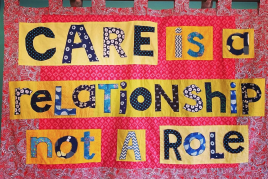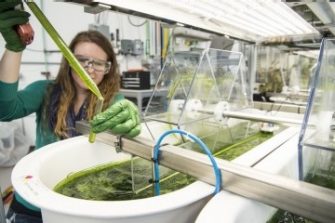SAGE Athena Swan Program

The Science in Australia Gender Equity (SAGE) Athena Swan Program, is an internationally recognised accreditation and awards program for gender equity, diversity and inclusion.
Athena Swan aims to embed genuine and sustainable gender equity, diversity and inclusion across the Australian tertiary education and research sector.
Accreditation pathway
UNSW Sydney is one of over 40 higher education and research institutions following the SAGE accreditation pathway.



UNSW Cygnet Awards
UNSW has now achieved all five cygnet Awards, marking completion of the second phase of the program and eligbility to apply for the Silver Award.
After receiving the Bronze Award, an institution must obtain the five Cygnet Awards to be eligible to apply for the Silver Award. The Cygnet Awards reflect progress made against key barriers identified in our Bronze Action Plan.
The five key areas identified by the Athena Swan Self- Assessment Team (SAT) as barriers to gender equity at UNSW are:
- Academic Promotions: learn more, opens in a new window | see the submission, opens in a new window
- Flexible Work and Care: learn more, opens in a new window | see the submission, opens in a new window
- LGBTQIA+ inclusion: learn more, opens in a new window | see the submission, opens in a new window
- Student pathways (STEMM): learn more, opens in a new window | see the submission, opens in a new window
- Workplace culture: learn more, opens in a new window | see the submission, opens in a new window

Achieving the full set of five Cygnet Awards demonstrates UNSW’s unwavering commitment to gender equity and the broader principles of diversity and inclusion. UNSW is dedicated to ensuring that our community continues to lead in this space and that we build a truly inclusive institution for generations to come.
UNSW's Bronze Athena Swan Award
UNSW undertook an extensive self-assessment between 2015-2018 to identify and understand the gender impacts of its policies, processes and practices, before receiving the SAGE Athena Swan Bronze Institutional Award, opens in a new window in 2018.
The UNSW Athena Swan Action Plan: 2018-2022, opens in a new window was a key part of our Bronze Award submission. The Plan outlines UNSW’s commitments to addressing the barriers to gender equity, diversity and inclusion, particularly in academia, and taking steps to develop a more inclusive culture where all staff can succeed.

Key initiatives
UNSW Athena Swan supports a wide range of activities to advance gender equity at UNSW. This includes providing and coordinating feedback on updates to university policies and processes from a gender equity perspective, as well as providing support for events such as International Women's Day.
Other gender initiatives at UNSW
More information
If you would like to get involved or if you have questions about UNSW’s Athena Swan program please reach out to us:










